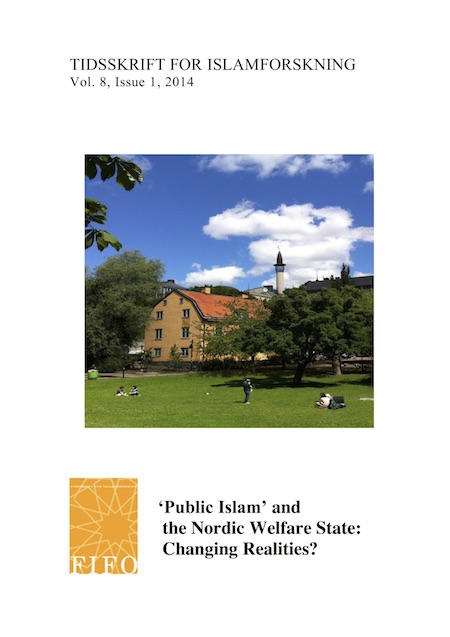Muslim Society Trondheim: A Local History
DOI:
https://doi.org/10.7146/tifo.v8i1.25327Keywords:
Muslim Society Trondheim, Norway, integration policy, active citizenship, interreligious dialogueAbstract
The article describes and analyzes the founding and development of Muslim Society Trondheim (MST), a jâmi‘ mosque and Islamic organization in Norway’s third largest city, Trondheim. The aim is to explore the significance for integration policy on ‘active citizenship’ and two-way accommodation between majority and minority of MST’s dialogues with the church and public institutions, with reference to Casanova’s concept ‘de-privatized public religion’ and Roy’s ‘churchification of Islam’. Main findings are that the dialogue with the church was the one which achieved the best results in terms of two-way accommodation; that MST’s dialogues have contributed towards the city’s Muslims claiming their civil and human rights; and that because this does represent a ‘churchification’ of Islam, it does not make MST a case of ‘de-privatized public Islam’ in Casanova’s sense.Downloads
Published
2014-02-23
How to Cite
Mårtensson, U., & Eriksen, E.-A. V. (2014). Muslim Society Trondheim: A Local History. Scandinavian Journal of Islamic Studies, 8(1). https://doi.org/10.7146/tifo.v8i1.25327
Issue
Section
Articles: Thematic section
License
Scandinavian Journal of Islamic Studies publish under creative commons license BY-NC-SA.





